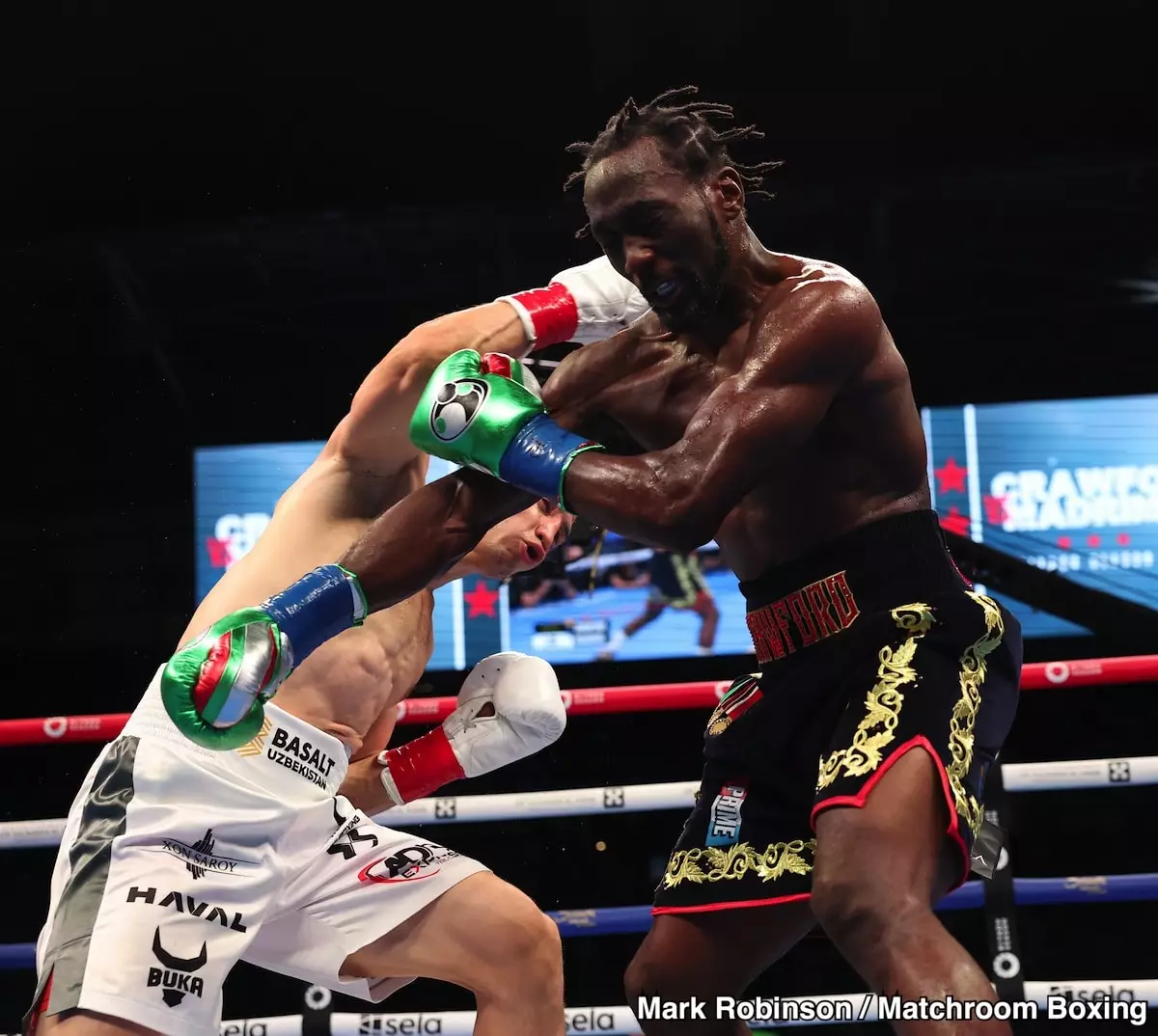The boxing world is buzzing with anticipation for the upcoming fight between Canelo Alvarez and Terence Crawford, scheduled for September 13th. While many fans look forward to this matchup, some insiders are raising concerns about the implications of such a bout. One such voice is Sampson Lewkowicz, the promoter for David Benavidez, who has publicly voiced his reluctance to watch the fight due to perceived health risks for Crawford. This perspective invites a deeper analysis of the reasons behind the fight and its implications for the state of professional boxing.
Lewkowicz’s apprehensions about Crawford’s well-being highlight a critical debate in boxing today—the balance between the sport’s financial incentives and the health of the fighters involved. Crawford, at nearly 38 years old, moves up two weight classes to face Alvarez, a fighter who possesses a significant size and strength advantage. Lewkowicz recalls Amir Khan’s devastating knockout against Alvarez, which still evokes emotional memories of the dangers that can arise in the ring. Thus, Lewkowicz’s concerns are not misplaced; the sport can often place athletes in perilous situations where the lure of money takes precedence over their safety.
Crawford’s decision to fight Alvarez raises questions about motivation. Is this bout a genuine sporting endeavor, or merely a lucrative opportunity tempting Crawford to step outside of his weight class? The potential of Crawford securing a rematch should he emerge victorious complicates matters further. It presents a scenario where the prospect of financial gain may overshadow the athlete’s physical health and long-term career.
From Lewkowicz’s point of view, the Alvarez-Crawford match is a “business” fight, highlighting the reality that many high-profile boxing matches are driven more by profits than they are by competitive spirit. This approach stands in stark contrast to traditional views of boxing, which emphasize the significance of fighters rising through the ranks to face champions. For many in the sport, Crawford’s entry into this fight without proving himself at 168 pounds undermines the competitive integrity of boxing.
Indeed, one might argue that this match is not an authentic representation of competitive spirit, as Crawford has not effectively earned his shot at Alvarez by defeating other notable fighters in the super middleweight division. This initiation raises broader questions about how fights are organized and the extent to which financial incentives distort the essence of what boxing should represent.
Sampson Lewkowicz’s commentary not only reflects a promoter’s vested interest in boxing dynamics but also signifies a larger dilemma faced by those within the industry. He expresses a yearning to see Canelo face the best opponent in Benavidez, who many believe would present a more compelling and legitimate challenge. This situation illustrates the intricate web of matchmaking, branding, and economic factors that can obscure opportunities for established fighters to face each other in competitive bouts.
Canelo’s choice to fight Crawford, perceived as a less risky business decision, draws criticism. While fans appreciate the allure of high-profile clashes, understanding the implications of cherry-picking opponents necessitates a more profound reflection on what this means for the legacy of fighters.
At the core of Lewkowicz’s argument is a fundamental respect for fighters. He emphasizes that the physical and emotional toll of boxing is substantial, and this goes beyond simple athletic competition. The potential outcomes of mismatched fights raise ethical questions that should not be overlooked.
As conversations about fighter safety and ethics in boxing continue to gain traction, the sentiments expressed by Lewkowicz act as a reminder of the human element involved in the sport. When promoters prioritize business over the well-being of fighters, it calls into question the values that underpin professional boxing.
The upcoming bout between Canelo Alvarez and Terence Crawford serves as a complex intersection of commerce, competition, and compassion. While fans anticipate the match, it’s crucial to consider the implications of such fights on fighter health and the integrity of boxing. The discourse initiated by Lewkowicz underscores the need for ongoing dialogue about the responsibilities of promoters and fighters alike, ensuring that the sport remains a true representation of skill, honor, and respect.

